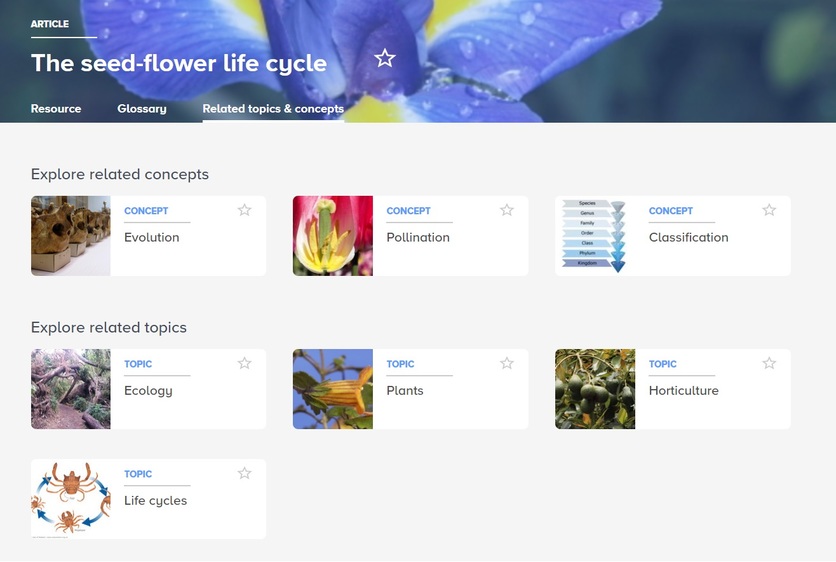Our November pānui is all about pedagogy – targeted ways to use our huge science glossary, why concepts matter, how you can inform our online PLD in 2022 and COP26.
Using our new glossary to learn the language of science
Science has its own language. Content vocabulary is important – students need to understand the meanings of key terms to master the underlying science concepts. The Hub has more than 2,500 glossary terms and they are now easily accessible and usable!
Glossary options
There’s a glossary tab under the title of most resources. This provides a list of all glossary terms and definitions in the resource. You can download the glossary terms – either as a full list or select terms to build your own vocabulary list. It creates a .docx file so you can edit the text to include your own information, create a quiz or upload it to a shared platform.
You can also use the full glossary as a science dictionary. Use the glossary filters to create bespoke vocabulary lists. Hub users who are signed in can add glossary terms to their collections. You can then add notes with questions about the terms, examples of their use or links to resources.
Anyone can use these tools – students are welcome to create their own lists and collections, too! It’s all explained in this article.
Topics and concepts
Another new enhancement is the Related topics & concepts tab. It sits next to the glossary tab and makes the related topics and concepts more visible and easy to access. Why is this important?
Science is often taught as a topic or theme. Science concepts are the big ideas that underpin a topic. Because students’ conceptual understandings develop more fully over time, having an awareness of the underlying concepts enables teachers to scaffold understanding.
Free PLD webinars and ideas for 2022
Our two most recent PLD webinars are now live: Having fun with the science capabilities and Tame Malcolm – indigenous pest management.
We are making plans for our PLD programme for 2022. We'd love to know what webinar topics you'd like us to pursue, and any other feedback you have about our webinars. If you have comments or suggestions, please use this short Google form or email us.
Resources to support COP26
If you want to connect with what’s happening at COP26, check out our news post. It has links to events in Aotearoa, online groups and Hub resources. Climate change is a big topic, but there are ways to present it in smaller, more manageable themes.
Best wishes for term 4
The Science Learning Hub is managed by the University of Waikato. We know first hand that it’s a trying time for educators and families in the Auckland and Waikato regions. We also know that teachers across the motu are heading into exams and report writing. We send our sincere best wishes to educators everywhere!
Follow us
We offer added value through our social media. Contact us about creating collections or boards tailored to your needs. We can help foster connections between the education and science communities.
- Facebook: www.facebook.com/nzsciencelearn
- Twitter: www.twitter.com/NZScienceLearn
- Pinterest: nz.pinterest.com/nzsciencelearn
- Instagram: www.instagram.com/sciencelearninghubnz
Your feedback
We hope you enjoy using the Science Learning Hub – Pokapū Akoranga Pūtaiao in your teaching and would love to hear from you. Your comments, ideas and feedback can be emailed to enquiries@sciencelearn.org.nz.
Regards
Science Learning Hub – Pokapū Akoranga Pūtaiao
See all news

